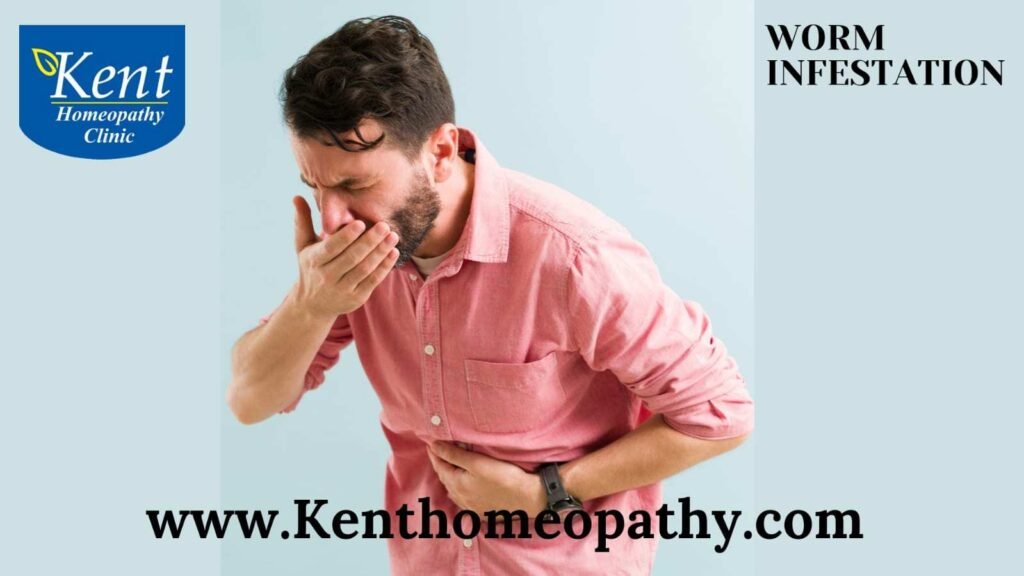Worm infestations

Worm Infestation: Unraveling Symptoms, Causes, and Types
Worm infestation, also known as helminthiasis, refers to the presence of parasitic worms in the human body. These parasites can reside in various organs and tissues, causing a range of symptoms. Understanding the symptoms, causes, and types of worm infestations is crucial for diagnosis, treatment, and prevention.
Symptoms:
- Abdominal Discomfort:
– Infected individuals often experience abdominal discomfort, including pain, bloating, and cramping. This can result from the presence of worms in the digestive tract.
- Digestive Disturbances:
– Digestive disturbances such as diarrhea, constipation, nausea, vomiting, or changes in bowel habits may occur due to the impact of worms on the gastrointestinal system.
- Weight Loss:
– Unexplained weight loss can be a symptom of severe worm infestations, especially when the parasites affect nutrient absorption in the intestines.
- Fatigue:
– Chronic worm infestations can lead to fatigue and weakness, as the parasites may consume nutrients intended for the host.
- Visible Worms:
– In some cases, adult worms or their eggs may be visible in stool, indicating a parasitic infection. This is more common in certain types of worm infestations.
- Itching Around the Anus:
– Itching or irritation around the anus, known as anal pruritus, may occur, especially with pinworm infestations. This is often more noticeable at night.
- Skin Rashes:
– Certain worm infestations, such as those caused by larval migration, can lead to skin rashes and irritation.
- Anemia:
– Hookworms and other blood-feeding worms can cause anemia due to the loss of blood or disruption of red blood cell production.
Causes:
- Poor Hygiene Practices:
– Contaminated food, water, and inadequate personal hygiene practices contribute to the spread of worm infestations. Consuming undercooked or contaminated food increases the risk.
- Contact with Infected Soil:
– Soil-transmitted helminths, such as hookworms, can enter the body through direct skin contact with contaminated soil.
- Consumption of Contaminated Food and Water:
– Eating raw or undercooked fish, meat, or vegetables contaminated with worm larvae can lead to infestations.
- Poor Sanitation:
– Inadequate sanitation facilities and improper waste disposal can create environments conducive to the transmission of worm infestations.
- Close Contact with Infected Individuals:
– Person-to-person transmission, particularly in crowded or unsanitary conditions, can occur, especially in the case of pinworm infestations.
- Travel to Endemic Areas:
– Traveling to regions where certain worm infestations are more prevalent increases the risk of exposure.
- Inadequate Veterinary Practices:
– In cases of certain parasitic infections, inadequate veterinary practices or contact with infected animals can lead to human infestations.
Types:
- Roundworms (Nematodes):
– Ascaris lumbricoides is a common roundworm that infects the intestines. Symptoms include abdominal pain, digestive issues, and occasionally, visible worms in stool.
- Tapeworms (Cestodes):
– Tapeworms, such as Taenia saginata (beef tapeworm) and *Taenia solium* (pork tapeworm), can cause digestive disturbances and weight loss. Segments of tapeworms may be visible in stool.
- Flatworms (Trematodes):
– Liver flukes (Fasciola hepatica) and blood flukes (Schistosoma species) are examples of flatworms that can cause liver and blood vessel damage, respectively.
- Hookworms:
– Hookworms, like *Necator americanus* and *Ancylostoma duodenale*, can cause anemia and digestive issues. Infection occurs through contact with contaminated soil.
- Pinworms:
– Pinworms (*Enterobius vermicularis*) are small, white worms that commonly infect the intestines. Anal itching, especially at night, is a characteristic symptom.
- Whipworms:
– Whipworms (*Trichuris trichiura*) can cause abdominal pain, diarrhea, and weight loss. Infection occurs through ingestion of contaminated food or water.
- Threadworms:
– Threadworms, also known as strongyloides, can cause skin rashes and digestive issues. Larvae penetrate the skin and migrate to various organs.
Early detection and prompt treatment are crucial for managing worm infestations and preventing complications. Individuals experiencing symptoms suggestive of a worm infestation should seek medical attention for appropriate diagnosis and intervention.
Contact to know more
Contact
Timings
Monday to Saturday:
11:00 AM to 02:30 PM
06:30 PM to 09:00 PM
